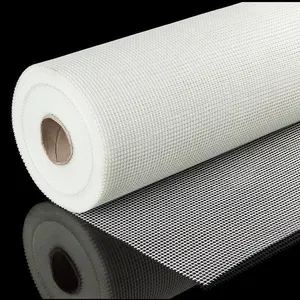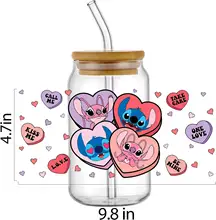What are Printing Mesh
Printing mesh is a critical component in the screen printing process, which is a method of transferring ink onto a substrate through a stenciled mesh screen to create a printed design. It's widely used in various industries ranging from textile printing to graphic, ceramic transfers, and electronics. The mesh serves as a porous filter, allowing ink to seep through its openings where the stencil permits, while blocking areas where ink is not required. This versatility makes it an essential tool for businesses ranging from small-scale artisan workshops to large industrial manufacturers.
The material composition of printing mesh can vary, including options like polyester, nylon, and stainless steel, which can be chosen based on the specific requirements of the print job. Polyester meshes are popular for their durability and tensile strength, nylon meshes for their flexibility, and stainless steel meshes for their precision and resistance to wear. The mesh count, or the number of threads per inch, also plays a pivotal role in determining the resolution and quality of the print. A higher mesh count allows for finer detail but less ink deposit, while a lower mesh count results in more ink deposit but less detail.
Each printing mesh is also characterized by its weave type and elasticity. The plain weave is common due to its simplicity and uniformity. Elasticity varies with material; some meshes offer low elasticity to maintain a stable tension during printing, while others provide high elasticity for more dynamic applications. Other features such as anti-static properties, tear resistance, quick-dry capabilities, shrink resistance, breathability, and stain resistance can add value to the printing process depending on the use-case scenario.
Types of Printing Mesh
The choice of printing mesh largely depends on the application it is intended for and the type of material being printed on. Several types are available to suit different needs:
Polyester Mesh: This is one of the most commonly used materials for screen printing due to its durability and ability to retain high tension. It's suitable for general screen printing projects like t-shirts or other textiles.
Nylon Mesh: Preferred for its elasticity and flexibility, nylon mesh works well with irregular surfaces or when printing on materials that require the mesh to conform closely to the substrate.
Stainless Steel Wire Mesh: Offering extremely high precision with very fine threads, this type is ideal for applications that require intricate detail such as electronics or industrial screen printing.
Spandex/Polyester or Spandex/Nylon Mesh: These are specialized meshes that combine materials to achieve both elasticity and strength. They are often used in textile applications where stretchability is essential.
Each type of mesh comes in various thread counts and colors – predominantly white and yellow – which can affect how much light passes through during exposure processes in screen making and ultimately influence print quality.
How to choose Printing Mesh
Selecting the right printing mesh is crucial for achieving optimal print results. Here are several considerations businesses should take into account when purchasing printing mesh:
Material: The choice between polyester, nylon, or stainless steel should be guided by the substrate material, desired print quality, and durability requirements. For instance, stainless steel would be preferable for very fine details or high-wear industrial applications.
Mesh Count: The level of detail in your artwork should inform the mesh count you select; higher counts for finer details and lower counts for bolder graphics or heavier ink deposits.
Color: White meshes tend to expose faster due to their reflective nature but can result in loss of detail due to light scatter. Yellow meshes minimize light reflection and scatter better suited for detailed images.
Weave Type: A plain weave offers consistency and uniformity in print quality which is suitable for most applications.
Elasticity: Depending on whether the print job requires a tight registration or if it's on a stretchy material like textiles with spandex content, choose low or high elasticity meshes respectively.
Special Features: Consider anti-static properties if printing on sensitive electronic components or quick-dry features for fast production cycles.
Businesses should carefully evaluate their specific needs against these criteria when choosing their printing mesh supplier on Alibaba.com.
Best Printing Mesh on Alibaba.com
For businesses looking across the globe for reliable suppliers of printing mesh, Alibaba.com stands out as an indispensable marketplace. From small-scale art studios requiring bespoke orders to large textile manufacturers seeking bulk quantities at competitive rates, this platform caters to all scales of commercial needs. Alibaba.com simplifies international trade by connecting buyers with a diverse range of suppliers who offer make-to-order services as well as ready-to-ship inventory across more than 40 categories including various types of printing meshes.
The vast selection available on Alibaba.com includes meshes in different materials like polyester and nylon as well as specialized stainless steel options for precision work. With easy navigation and powerful search tools, customers can quickly locate products like "Polyester Silk Screen Printing Mesh" or "Stainless Steel Wire Screen Printing Mesh" that suit their specific project requirements without wading through irrelevant listings.
In addition to facilitating easy discovery of products, Alibaba.com also prioritizes transaction security with services like Trade Assurance that protects buyers' payments until they confirm satisfactory delivery of their goods. Furthermore, Alibaba.com supports businesses with features that enable buying via mobile devices and communication in local languages – all designed to make global trade more accessible than ever before. Whether it's quality assurance or ease of use you're after when sourcing printing mesh materials, Alibaba.com offers an unmatched platform to fulfill your business needs effectively and efficiently.
Common FAQs for Printing Mesh
What is printing mesh and what is its role in screen printing?
Printing mesh is a finely woven material used in the screen printing process to transfer ink onto substrates. It acts as a filter, allowing ink to pass through its open areas as defined by the stencil applied on the mesh.
How does mesh count affect my printing project?
Mesh count refers to the number of threads per inch in the mesh. A higher mesh count allows for finer detail in the print but less ink deposit, while a lower mesh count results in bolder prints with more ink deposit.
What materials are used to make printing mesh?
Common materials for printing mesh include polyester, nylon, and stainless steel, each offering different properties such as durability, flexibility, and precision for various printing applications.
What are the differences between white and yellow printing mesh?
White meshes reflect more light during exposure which might cause light scatter and loss of detail, while yellow meshes minimize light reflection and scatter, enhancing detail in the stencil-making process.
Can the elasticity of a printing mesh impact my print quality?
Yes, the elasticity of a printing mesh can affect print quality. Low elasticity meshes offer stable tension for tight registrations, while high elasticity meshes are suitable for printing on stretchy materials.
What weave type is most common for printing meshes and why?
Plain weave is the most common type of weave for printing meshes because it provides uniformity and consistency in print quality, which is suitable for a wide range of screen printing applications.
Are there any special features I should look for in a printing mesh?
Special features like anti-static properties can be important when printing on electronics, while quick-dry capabilities might be beneficial for fast production cycles. Other features like tear-resistance or breathability may also be considerations depending on specific project requirements.
How do I choose the right type of printing mesh for my business?
To choose the right type of printing mesh, consider your substrate material, desired print quality, durability needs, level of detail required in your artwork, and any special features that may benefit your specific application.
How does Alibaba.com ensure the quality of printing mesh supplied by vendors?
While Alibaba.com connects buyers with suppliers, it ensures quality by offering services like Trade Assurance that protect payments until delivery confirmation. However, it is important to carefully review supplier profiles and customer feedback.
What should I consider when ordering custom-made printing meshes from suppliers on Alibaba.com?
When ordering custom-made printing meshes from suppliers on Alibaba.com, you should provide detailed specifications regarding material, mesh count, dimensions, color, and any unique features required for your screen printing needs.







































 浙公网安备 33010002000092号
浙公网安备 33010002000092号 浙B2-20120091-4
浙B2-20120091-4